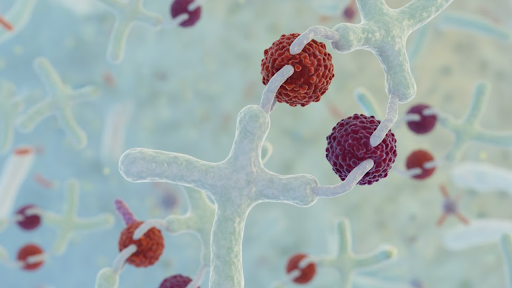Antibodies have evolved far beyond their classic immune roles. Today, they stand at the forefront of molecular biology.
They are powerful tools that allow scientists to peer into the inner workings of cells with remarkable precision.
As of 2025, the global antibodies market is valued at roughly USD 204.48 billion. In fact, the market is expected to reach USD 432.90 billion by 2033.
Meanwhile, the specialized research antibodies market (used in labs for discovery, diagnostics, and biomarker studies) is estimated at around US$7.39 billion in 2025.
This explosion in scale reflects how indispensable antibodies have become for:
- Detecting
- Measuring
- Visualizing
Proteins in all kinds of experiments. Thanks to advances in recombinant antibody technology. Researchers can now design highly specific and reproducible antibodies.
Let’s learn more about how antibodies are driving breakthroughs and opening new horizons in molecular biology.
Highly Specific Binding
Antibodies are known for their high binding specificity. They can tell apart even very similar molecules and bind to unique epitopes on the proteins researchers are studying.
This precision makes it possible to detect and study a particular protein. Thanks to advances in antibody engineering, scientists can now design antibodies for very specific research needs.
Researchers often use techniques like immunoprecipitation combined with mass spectrometry to double-check that antibodies are hitting the right targets. This is important for understanding how:
- Proteins work
- They interact with other molecules
- The cellular pathways they are part of
Consistent and Virtually Limitless Supply of Identical Antibodies
The availability of antibodies has become way easier and more reliable with the help of:
- Hybridoma technology: A method of creating monoclonal antibodies by fusing antibody-producing B-cells with myeloma cells.
- Recombinant antibody production: It is a genetic engineering process that uses DNA technology to create antibodies in a lab.
Once a recombinant antibody is created, it can be produced in large quantities with consistent quality. This gives researchers a virtually endless supply of identical molecules. The consistency you get is truly a game-changer, as it removes the variability you often see with traditional polyclonal antibodies. You can get accurate, reproducible experimental results. Plus, recombinant antibodies like the SOX10 recombinant antibody give scientists dependable tools that are tailored to their research needs.
Versatility Across Techniques
Antibodies offer versatility in molecular biology. They can be used in techniques such as:
- Western blotting
- ELISA
- Immunohistochemistry
- Flow cytometry
Antibodies let researchers detect, measure, and even pinpoint proteins in all kinds of samples.
Recombinant antibodies take this versatility even further. They can be engineered for specific tasks with better binding or stability depending on the assay. This flexibility makes it easier for scientists to:
- Analyze biomolecules from different angles
- Cross-check their results
- Get stronger, more reliable data
Detection of Post-Translational Modifications
Proteins don’t just work in the default state. They are often modified after they are made. These modifications, called post-translational modifications (PTMs) act like signals that turn protein:
- Functions on or off
- Change where they go in the cell
- Alter how they interact with other molecules
For example:
- Phosphorylation can activate or deactivate enzymes
- Glycosylation can affect protein stability or how it is recognized by other cells
- Ubiquitination can mark a protein for degradation
Detecting these changes helps reveal:
- How proteins respond to signals
- Control cell functions
This makes it easier to:
- Track signaling pathways
- Study disease mechanisms
Targeted Therapeutic Potential
Antibodies are transforming medicine. Engineered monoclonal and recombinant antibodies can act as targeted therapies for:
- Cancer
- Autoimmune disorders
- Infectious diseases
Real-Time and In Vivo Tracking
Antibody-based probes let scientists watch proteins and cellular events unfold in real time right inside living organisms. The fluorescent labels are attached to recombinant antibodies. This helps researchers track:
- Where proteins are
- How they move
- How they interact with other molecules
This also allows studying biological processes as they occur. In vivo imaging expands what we can do in translational research.
The Bottom Line
Antibodies have truly reshaped the landscape of molecular biology. These tools have become the backbone of modern biological research. They allow scientists to detect, track, and understand proteins with a level of precision that was once impossible. The high-quality, validated antibodies also give accurate, reproducible results. The future of molecular biology also looks more dynamic and promising than ever.

